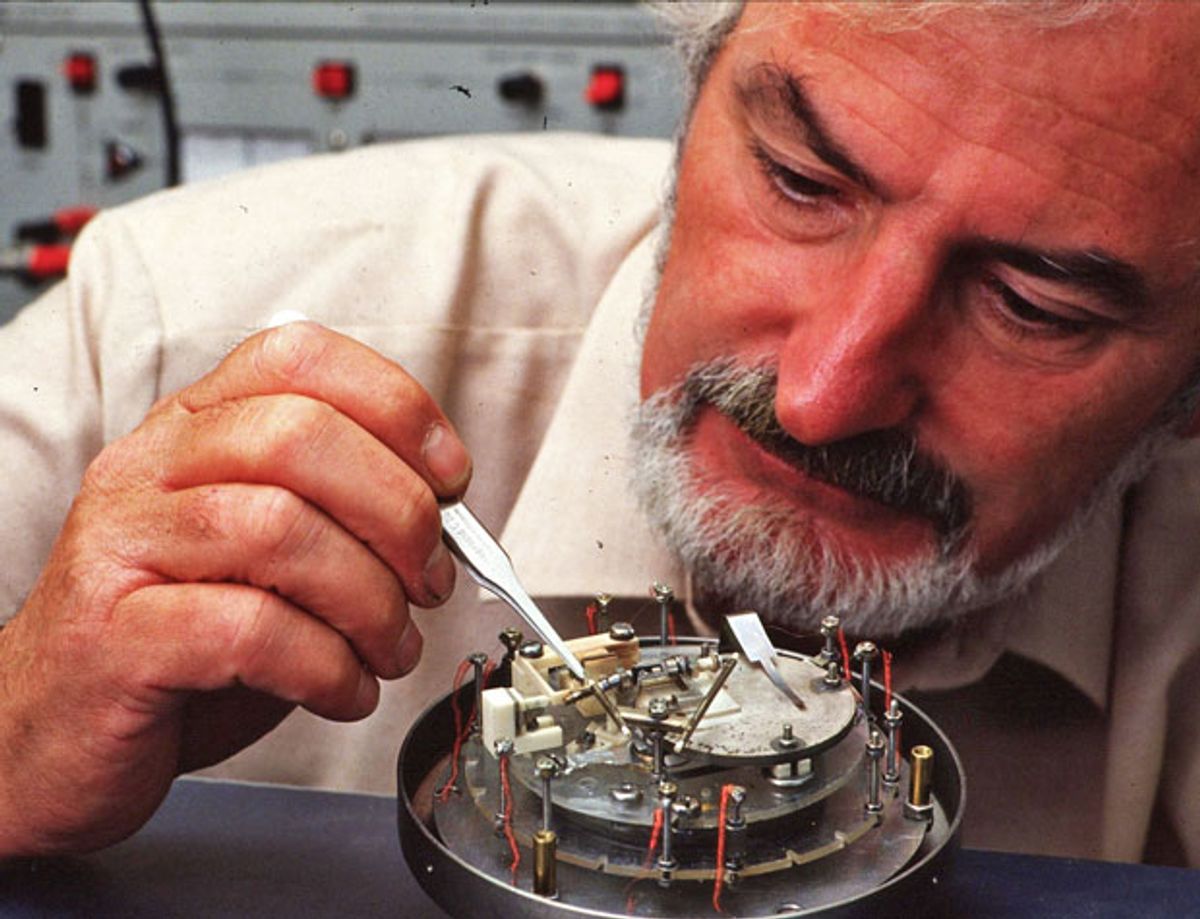By now, just about everyone with an interest in the field of nanotechnology has heard that Heinrich Rohrer, who won the 1986 Nobel Prize in Physics for his co-invention of the scanning tunneling microscope (STM), passed away this week at the age of 79 from natural causes.
It would be hard to overstate the impact that Rohrer and his colleague at IBM Zurich, Gerd Binnig, have had on the field of nanotechnology. The STM has become a cornerstone tool for characterizing and manipulating the world on the nanoscale. Through ever more refined iterations of the device, we are peering into the atomic scale with greater and greater clarity. Even the lay-est of laypersons can appreciate the STM’s feats of prowess when they're put on display in videos in which atoms are made to perform stunts as if they're children in a home movie.
For a description of how the STM came to be and how it works, IBM Zurich’s reporting on Rohrer’s life is both thorough and poignant and I recommend you take a look at it.
All I would add are my own personal recollections of Rohrer from a one-on-one interview I had with him and from joint interviews I and other journalists had with him and Binnig back in 2011 while attending the grand opening of IBM Zurich’s new nanotechnology research facility, which IBM aptly named the “Binnig and Rohrer Nanotechnology Center.“
In these interviews, I was struck by three things.
First, Rohrer’s absolute humility in his role in the development of the STM. He characterized himself as simply wanting to see if it would be possible to eliminate approximations of inhomogenities on surfaces and measure them precisely. Beyond his genius of simply asking the right question, he also had the good sense to hire a brilliant young scientist—Binnig—who could help him in his quest.
Second, Rohrer was funny. Nearly everything he said during our brief time together had a wry twist of humor to it. It seemed to be humor borne of humility (not taking himself too seriously), pragmatism, and his sense that his role as a leader in a technology revolution was so unexpected that he just had to laugh at it.
Finally, I was struck by the chemistry between the two men. They expressed unflagging admiration for one another, despite being in some ways polar opposites. Rohrer was the pragmatist, while Binnig seems to have the touch of the poet. Interestingly, though, in the development of the STM those roles were reversed in that Rohrer was the idea guy and Binnig was the engineer who got the device built.
In any event, their contrasting personalities, humor, and chemistry were on clear display the day of the opening of the lab named after them.
After Binnig had carefully answered a question about their co-discovery of the STM, Rohrer quipped, "If you didn't quite understand what Gerd just told you, you are not alone."
The audience laughed with relief that it was okay that they didn’t understand the carefully thought out explanation—I among them. But the truth was that Rohrer understood Binnig’s explanation perfectly and said that to put the audience at ease. Rohrer was both a great scientist and a true gentleman.
Image: IBM
Dexter Johnson is a contributing editor at IEEE Spectrum, with a focus on nanotechnology.



